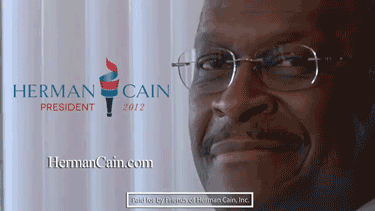Casino mogul is sparing no expense to get Romney elected, a win that would benefit his businesses and his bank account
Every day three scenes, on the surface unconnected, unfold in different corners of the world. By breakfast time in Macau, China's gambling mecca, thousands of people are inside vast casino resorts spending money on baccarat, poker, slot machines and restaurants. Managers monitor the profit by the hour.
By lunchtime in Israel commuters and shoppers are perusing Israel Hayom, a brash giveaway tabloid and the country's most-read newspaper. It supports the government of Binyamin Netanyahu. And it clobbers rival dailies to the point of extinction.
By dinnertime viewers in Florida, Ohio, Colorado, Nevada and other swing states in the US presidential election are watching, for the umpteenth time that day, television advertisements attacking Barack Obama and promoting Mitt Romney. Their volume and cost have set records.
This eclectic, global triptych is connected by a fourth, less visible scene. In the quiet hum of his air-conditioned Las Vegas headquarters a short, portly man with thinning red hair absorbs reports detailing it all, Macau, Israel, the election, because in every one he is a player. He crunches the profits, circulation and polling and ponders his next move. His name is Sheldon Adelson, and he is one of the world's richest men.
"I suppose you could say that I live on Vince Lombardi's belief. Winning isn't everything, it's the only thing," he told a recent interviewer, citing the legendary American football coach. "So, I do whatever it takes, as long as it's moral, ethical, principled, legal."
No one doubts Adelson, 79, lives to win. But with the White House race entering the final stretch of what both sides call the most important election in decades there is growing controversy over his business interests and methods.
"I've studied Sheldon Adelson closely but I don't claim to know him," said John L Smith, a Las Vegas-based author and columnist who tangled with him in a bitter court case. "I'm like a kid at the zoo watching the big predator but not understanding."
How the son of immigrants – Adelson's Lithuanian-born father was a taxi driver, his British-born mother a seamstress – rose from poverty in Boston's tough Dorchester district to become a force in global politics and commerce is, depending on your perspective, an inspiring story of entrepreneurial grit and flair, or a cautionary tale of plutocracy and democratic dysfunction.
Adelson, with a fortune valued at over $20bn, controls a unique web linking gaming empires in Nevada and Asia, media control in Israel and mega-donations to Romney and other Republican candidates.
He represents a new breed of tycoon, said Chrystia Freeland, the editor of Thomson Reuters Digital and author of Plutocrats: the rise of the new global super-rich and the fall of everyone else. "The caricature is of conspicuous consumption, yachts and jets, but for the super-rich the real status symbol is having a voice, having an impact on public policy, and in that sense Sheldon is characteristic of his class."
He is not shy about declaring his wealth. "You know," he reportedly bragged to George W Bush, when he was president in 2008, "I am the richest Jew in the world."
If few knew that then, many know now. Adelson has burst onto the international stage by becoming, as one observer noted, "sugar daddy" to zionist and conservative causes.
He is a modern Croesus who converts cash into influence. The question, which to critics becomes more urgent with each day of the campaign, is the extent to which he may convert, or try to convert, influence into cash. In a written reply to Guardian questions, Adelson said he wished only that the White House invite him to its annual Hanukah party and save him some potato pancakes.
'He doesn't give up'
A Romney victory could yield Adelson billions in tax cuts and make the White House an ally. His businesses are under investigation from the justice department and other agencies over alleged wrongdoing in Asia.
There was little in his background to suggest Adelson would become the right's impresario. Reared in liberal Massachusetts, he worked his way through multiple jobs – vending machine salesman, court reporter, real estate dealer, toiletries packager – and scored big with Comdex, a computer trade show he launched in 1979.
In 1988 he bought a chunk of the Sands hotel and casino, a fading, one-time rat pack haunt and turned it into Las Vegas Sands Corporation, a glitzy triumph with the Venetian as its flagship. He gambled, correctly, that if he built convention centres conferences would flock to Sin City.
Even in a town known to be filled with tough operators, Adelson's steeliness stood out. He drove aides as hard as he did himself, did not take no for an answer, and did not forgive trespasses.
He successfully sued the Daily Mail for libel and in a separate case went after Smith and his publisher, Barricade Books, over a depiction of Adelson in Smith's book Sharks in the Desert.
Threatened with a $15m lawsuit, the publisher entered bankruptcy and agreed to a judgement of libel. Smith also entered bankruptcy. A judge dismissed the suit against him and ordered Adelson to pay some of the author's costs. "He's a real sweetheart," said Smith. "He doesn't give up."
Ron Reese, a spokesman who who has represented Adelson for a decade, defended his boss. "It is easy to be a critic of someone if you don't know them, haven't taken the time to learn about their values, or if you are simply jealous of their accomplishments. It's a lot like criticising the coaches and players of a football match you didn't watch or attend. The fact is, Mr Adelson is among the world's greatest philanthropists and has created tens of thousands of jobs throughout his business career."
What vaulted Adelson into a league Donald Trump can only dream of was Macau, the former Portuguese colony that is part of China and hosts gambling under the "one country, two systems formula".
He outfoxed rival casino moguls to open the territory's first Las Vegas-style resort, the Sands Macao, in 2004. In reality it is two vast resorts, one of them the world's biggest. On its first day the crowd reportedly ripped doors off their hinges in a stampede for the gaming tables. Adelson recouped his $265m investment within a year.
"In 2004-5 the big question was when Macau would overtake Las Vegas; it was taking about $4bn to Las Vegas's $6bn. Now Macau is taking nearly $40bn a year - and Las Vegas is still on about $6bn," said Aaron Fischer, head of consumer and gaming research at CLSA Asia Pacific Markets.
Asia – he expanded into Singapore – has made him a multi-billionaire. "Other guys have made promises that may be they weren't able to deliver on. Sheldon stuck to the promises that he made [to officials] even though they have not always been perceived to have the best relationship," said Fischer.
"He doesn't have a reputation for always saying the right thing. I really think he's a character. I respect him and I find him to be quite honest and very down to earth. Maybe that's sometimes been his problem; he's not very good at diplomacy."
Sergio Terra, editorial executive director of the Portugese-language newspaper Tribuna Macau, said Chinese officials bristled even as they benefited from Adelson's investment.
"He wanted everything and everything first. That's not the way the Macau government works. And he had to adjust to the Beijing approach. They don't like pressure."
One veteran observer of the casino industry, who declined to be named, said Adelson charged through barriers. "It's served him well but he might have knocked down a few too many and used weapons that are going to be subject to review by regulators. I think his quest is to be the world's richest man – I don't think he's made any secret of that. He's always referring to his ranking."
Las Vegas Sands faces three lawsuits over its Macau operations: a former executive, Steve Jacobs, claims wrongful dismissal and alleges the company collaborated with triads and sought to blackmail officials. The company is also snagged in a bribery scandal and claims it violated US anti-money laundering laws. Adelson vehemently denies wrongdoing. "We're going to be found absolutely clean," he said last year. The company blamed the accusations on disgruntled former employees.
Breaking into the Israeli newspaper market
Macau is the golden egg, but Israel is Adelson's enduring passion. The mogul often tells the story how he stepped off the plane for the first time wearing the shoes of his late father, who had been too poor to travel. His commitment has grown since marrying his second wife, Miriam, an Israeli, in 1991.
The Adelsons have underwritten think tanks, exchange programmes, DC-based lobby groups and, most controversially, the interests of Netanyahu. Adelson believes Israel's hawkish prime minister is a necessary bulwark to supposed peace talks and Palestinian statehood, a prospect he abhors.
After false starts, Adelson established his tabloid, Israel Hayom, in 2007. It now has a 38% share of the weekday newspaper market, compared to 36% for its main rival Yedioth Ahronoth, 11% for Ma'ariv and 7% for Haaretz.
The heavily advertised paper is given away by uniformed distributors on the streets, outside supermarkets and at gas stations. It also has paid home-delivery sales.
Its partisanship earned the nicknamed "Bibiton", a play on the prime minister's nickname and the Hebrew word for newspaper.
Many have blamed it for the catastrophic demise of paid-for newspapers. Maariv faces possible closure. Haaretz is also in crisis, with layoffs and pay cuts looming. Yedioth announced cutbacks earlier this year, including dozens of job losses.
The Israeli business website Globes quoted a senior Yedioth executive as saying: "You must know that Israel Hayom is destroying Israeli journalism not only at the professional level, with its embarrassing editorial conduct, but also at the economic level."
Israel Hayom was breaking the market with ads at zero cost, crippling rivals' revenue streams, he said. "Israel Hayom has finished Ma'ariv, and it is now finishing Haaretz. Adelson has simply brought ruin."
The mogul's friends disagree. "He put his money up for an alternative voice and people liked it. That's capitalism," said Sig Rogich, a businessman and media consultant in Las Vegas. Rogich also defended his friend's plunge into this year's US presidential and congressional races after years of confining himself to Nevada politics. He has shattered records by spending an estimated $70m backing Republican candidates nationwide.
"This is a country built on the principle of freedom of speech," said Rogich. "When George Soros funded the other side no one complained. Sheldon has been transparent (about his contributions). You have to admire the truthfulness of standing up and telling the world that's he's responsible for the message."
Adelson backed Newt Gingrich in the primaries but rowed in behind Romney. As the money has flowed, and as Paul Ryan and other Republican figures paid homage to their benefactor in Las Vegas, the New York Times, among others, asked what does he expect in return.
Consciously or not, at a private fundraiser Romney echoed Adelson's views when he appeared to dismiss a two-state solution and said the Palestinians had no interest in peace. The Republican's proposed tax cuts could swell the mogul's bank account by about $2bn.
In an interview with Politico, Adelson, who runs the only non-unionised resort on the Las Vegas strip, accused Obama's administration of waging a vendetta. If Romney wins, observers will closely watch the fate of the probes into Adelson's businesses.
Onkar Ghate, a vice-president of the Ayn Rand Institute, which champions free markets, said tycoons had a right to fight back against vindictive governments: "If they spend money purely defensively then I think that's entirely correct."
But others, including the Economist, fret that Super Pacs backed by the "0.1%" are rigging the system and entrenching inequality. "It is hard to believe that this surge of cash from the richest will have no impact at all."
Freeland, the author of Plutocrats, said Adelson's activism raised profound issues. "Democracy is supposed to be one person, one vote. But when economic disparity grows and transfers into political disparity, well, you have to ask where it's going."
A conversation with Sheldon Adelson
Guardian: You have made substantial donations to the Romney campaign. Do you expect a return from this investment? How do you respond to critics who say you are buying influence?
Sheldon Adelson: I do not expect any type of return, except that if the candidate we are supporting becomes president he maintains this country's freedom and its free-market capitalist ways, as opposed to his opponent who I believe is following socialist policies – it may work in other countries, but not here.
There is absolutely no expectation of any favoritism whatsoever, though If I'm fortunate enough to be invited to the White House Hanukkah Party I hope someone would save me a couple of potato pancakes. They ran out the last time I was there.
Guardian: Some critics also say a Romney victory could yield you billions in tax cuts and possible protection from multiple investigations into your business affairs. How do you respond?
SA: I would be entitled to no preferential tax cuts or any other type of preferential treatment whatsoever. Any tax cuts that would apply to me would apply to President Obama, his wealthy donors, and everyone else. By the way, what is wrong with supporting a candidate whose economic views and values are the same as yours?
Guardian: It's been said of you that you are probably the most aggressive, unforgiving individual in the business world today. What do you say to that?
SA: Friends I've had for as long as 70 years would never match that word with me or my way of life. The word unforgiving and my name don't belong together – it is inconsistent with my concept of giving away much more than I make or spend on my family to help repair the world – through our drug treatment centers which rehabilitate drug addicts, specifically women who turn to prostitution because of drugs; our medical research foundation; the strong support we provide for our military veterans here in the United States and many other causes.















